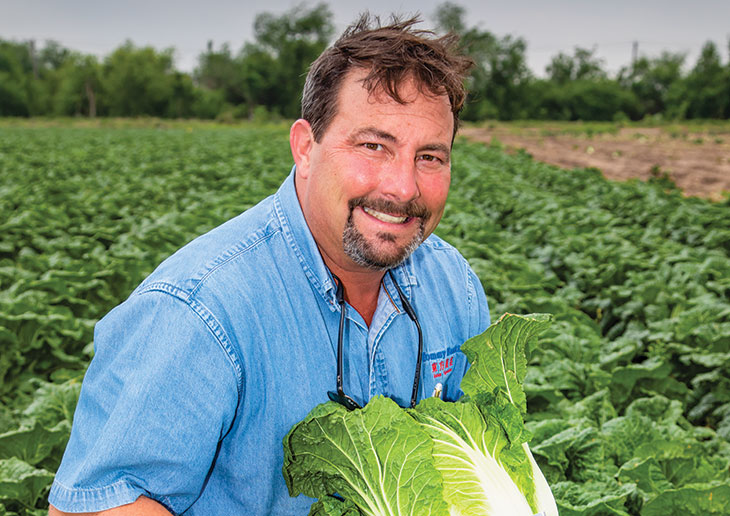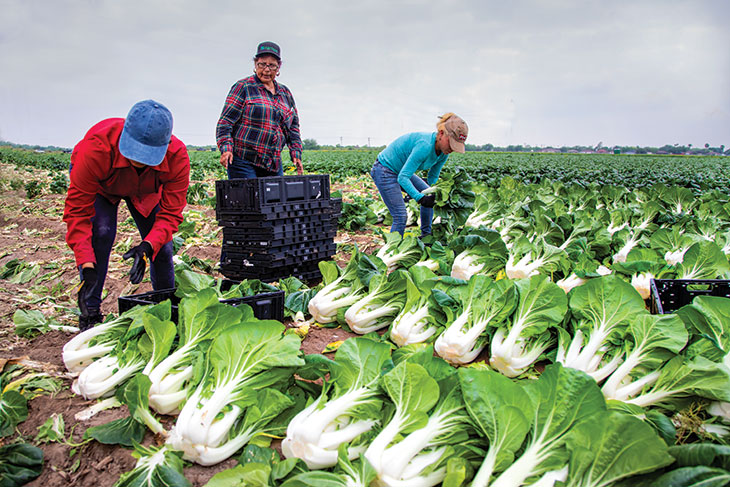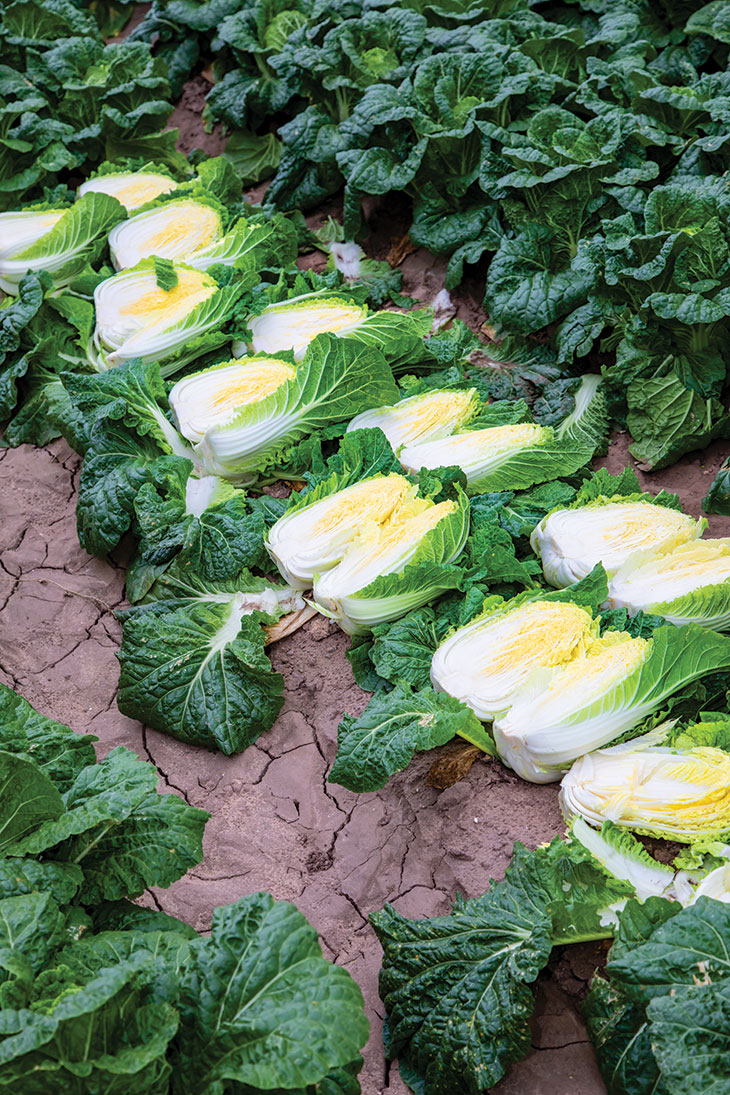
Photo by Larry Ditto
Tommy Hanka chops a napa cabbage on his farm in Texas’ Rio Grande Valley.
Bok choy grown in Texas? It’s true.
Texas Farm Credit customer Tommy Hanka has the proof. He’s been growing bok choy and napa cabbage since 1994, when he graduated with a horticulture degree from Texas A&M University.
But he isn’t the first in his family to raise Asian vegetables. His father, James, began growing bok choy in the 1970s when he recognized that the increasing Asian population in Houston provided a niche market he could supply.
Since then, the vegetables have become mainstream in the American diet. As a result, demand for Hanka’s crops continues to grow.
Extending His Growing Season
Today, this fourth-generation farmer grows 500 acres of bok choy and napa cabbage on his farm in Edinburg, Texas, in the heart of the Rio Grande Valley. He employs some 50 workers to help plant and harvest.
To ensure a continuous harvest from November to April, he contracts with a large greenhouse operator to plant vegetable seeds weekly, starting in August. After 30 days, the seedlings are hand-transplanted from greenhouses to fields. About every 80 days, a new crop is harvested.
“Bok choy and napa cabbage can be a bit finicky,” says Hanka. “They must have a consistent temperature. If it gets too hot, the plants may bolt, or go to seed. And normally by mid-April it can get too hot in the Valley, and ‘tip burn’ or internal decay raises its ugly head, making the product unmarketable.
“I’ve shed a few tears over that,” he admits.
Contracting With Chain Stores
Hanka ships five semitruck loads of vegetables a day, for a total of 25 semis a week for four months.
The crops are contracted to chain stores such as H-E-B, Walmart, Safeway and Albertsons, which distribute the vegetables throughout the Midwest, the East Coast and Canada. By staggering his plantings, Hanka can meet the stores’ demands for consistent volume and quality.

Photo by Larry Ditto
Workers at Tommy Hanka Farms hand-harvest and pack bok choy, a cool-weather crop.
“Quality comes first, and quality over quantity,” is Hanka’s motto. To ensure his product is the best it can be, it is certified by PrimusGFS, a food safety audit group.
Relying on Farm Credit
Hanka has relied on Texas Farm Credit for much of his financing over the past four years.
“Texas Farm Credit has really helped me out,” he says. “I can’t say enough good things about them. I had a bad year, and they came through for me at an extremely critical time. They are pleasant, competent, and they look out for you.”

Photo by Larry Ditto
Napa cabbage, above, is slightly sweet and milder than regular cabbage. It can be eaten raw or cooked.
Billy Best, branch manager of Texas Farm Credit’s Raymondville office, calls Hanka one of the most diverse operators he’s worked with in his Farm Credit career.
“While working toward long-term goals,” says Best, “he is mitigating risk through a wide range of income streams ranging from vegetables and sod to cotton production and custom harvesting.”
Growing Other Veggies
Besides growing bok choy and napa cabbage, Hanka farms another 1,000 acres, including short-day onions, green and red cabbage, brussels sprouts and other cruciferous vegetables. He also grows cotton, corn and sorghum and owns a sod farm.
“I keep the commodity crops for rotation and to keep my key tractor drivers and irrigators busy year-round,” he says.
As for the Asian vegetables, they will remain Hanka’s main crops, so long as consumers continue to enjoy them.
– Staff
For more information, go to tommyhanka.com.